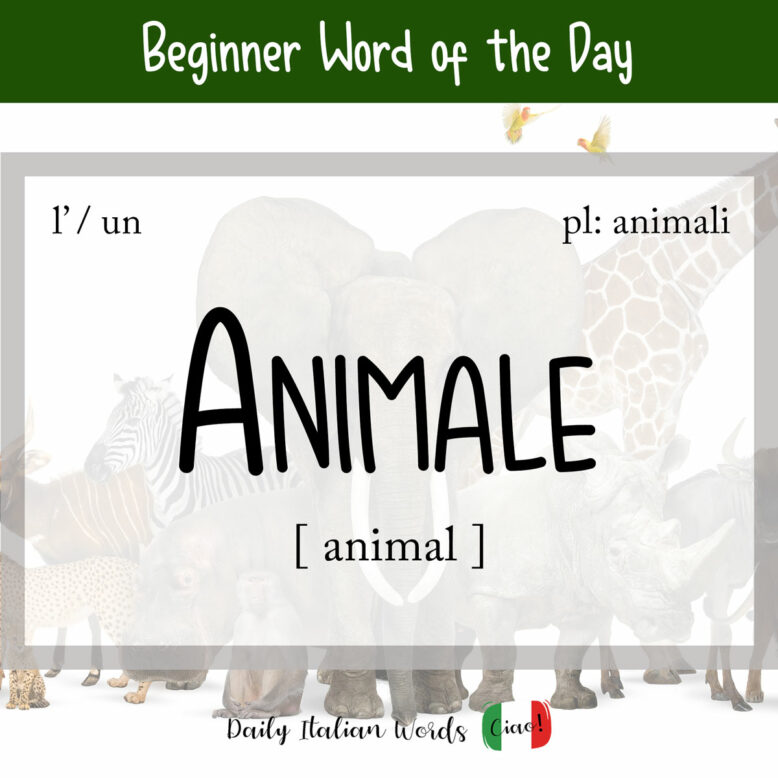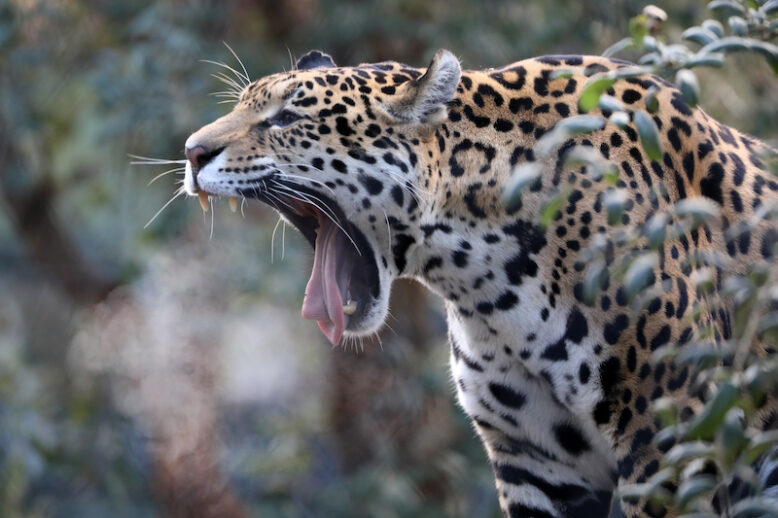Animale, the word for animal in Italian, is identical to its English cognate, barring the addition of a word-final e. Both words ultimately derive from the Latin animal, which is based on animalis (‘having breath’).

It is a masculine noun that takes the following definite and indefinite articles:
- l’animale = the animal
- gli animali = the animals
- un animale = an animal
- (degli) animali = (some) animals
As in English, animale in Italian can refer to all living beings or organisms, with specialised sense organs and a nervous system, that feed on organic matter.
I mammiferi sono gli unici animali che allattano con le mammelle.
Mammals are the only animals that nurse their young with mammary glands.

However, it is also used to contrast all nonhuman beings with human beings. In this sense, a common synonym is bestia (beast).
Ci sono tanti animali che corrono molto più velocemente dei migliori atleti olimpici.
There are many animals that run a lot faster than the best Olympic athletes.
Animals are classified in various ways including:
- animale a sangue freddo = cold-blooded animal
- animale a sangue caldo = warm-blooded animal
- animale domestico = house pet / domestic animal
- animale da fattoria = farm animal
- animale selvatico = wild animal

Because animals tend to be associated with uncouth behaviour and uncleanliness, animale is frequently used in a figurative sense to describe a person with these undesirable qualities. It is also used on its own as an insult: Animale! (You brute!)
Ma sei proprio un animale, perché non ti puoi comportare meglio?
You’re such an animal, why can’t you behave better?
The controversial process of animal testing is known as sperimentazione animale in Italian.
Two related terms you may not have encountered before are animale da palcoscenico (lit. stage animal) and animale televisivo (lit. television animal), both of which describe a person (usually an actor or entertainer) with the ability to beguile and capture the attention of an audience. A similar term is animale politico, the term for a particularly gifted politician or expert in politics.
In addition to being a noun, animale also functions as an adjective, in which case it translates as animal or bestial. For example, the word for animal kingdom is regno animale.
Heather Broster is a graduate with honours in linguistics from the University of Western Ontario. She is an aspiring polyglot, proficient in English and Italian, as well as Japanese, Welsh, and French to varying degrees of fluency. Originally from Toronto, Heather has resided in various countries, notably Italy for a period of six years. Her primary focus lies in the fields of language acquisition, education, and bilingual instruction.


